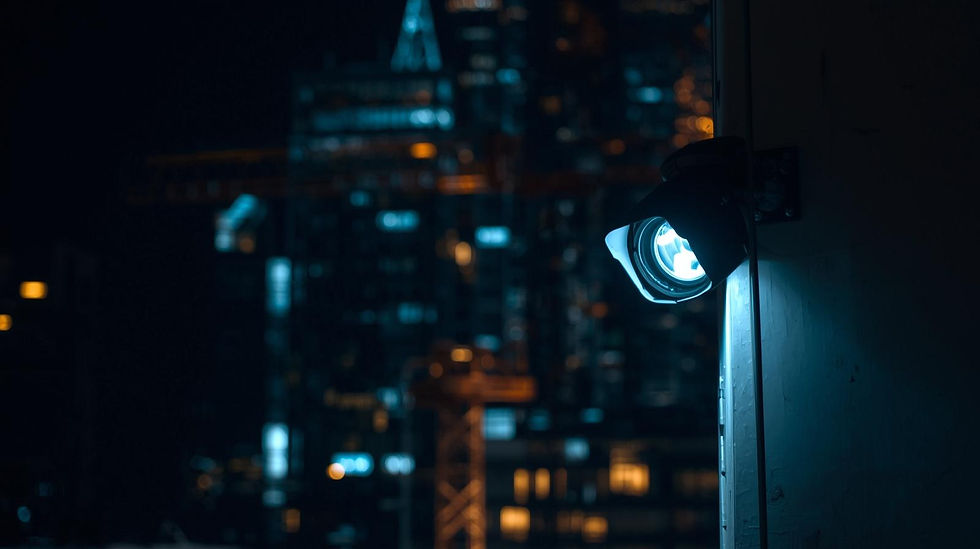Security Cameras and Crime Deterrence: A Look at the Evidence
- Apex Surveillance

- Jun 2, 2025
- 2 min read
In a time where crime prevention is a growing concern for both individuals and businesses, security cameras are often among the first solutions considered. But the question remains—do they actually deter crime? Numerous studies and decades of real-world use suggest that surveillance cameras can have a significant impact on discouraging unlawful activity when deployed effectively.
The Role of Security Cameras in Crime Prevention
The primary function of a surveillance camera is simple: to monitor activity and record evidence. However, cameras serve an even more critical role as psychological deterrents. The visible presence of security equipment often causes potential offenders to think twice before acting. Knowing they could be seen, recorded, and potentially identified creates an added layer of risk that many criminals aren’t willing to take.
This deterrent effect is particularly strong in areas where cameras are obvious and accompanied by warning signs indicating active monitoring.
What the Research Says
Several credible studies support the notion that security cameras reduce crime:
A University of North Carolina study found that 60% of surveyed burglars said they would avoid properties with visible security systems, especially cameras.
A study by the Urban Institute reported crime reductions of 15%–20% in public areas where surveillance systems were installed.
A systematic review by the Campbell Collaboration of over 40 studies showed that surveillance cameras were most effective in reducing crime in parking lots, transportation hubs, and city centers.
These findings consistently show that the presence of surveillance, especially when part of a larger security system, leads to reduced incidents of theft, break-ins, and vandalism.
What Types of Crime Are Most Affected?
Cameras are most effective in deterring:
Burglary
Theft and shoplifting
Vandalism
Trespassing and loitering
While they may not always prevent crimes of passion or spontaneous acts, they do increase the chances of catching offenders—another deterrent in itself.
Smarter Cameras, Smarter Security
Today’s surveillance systems go beyond just recording video. Modern cameras often include:
Motion sensors
AI-powered detection
Real-time alerts
Remote monitoring via mobile apps
These features allow for faster response times and increase the overall effectiveness of the system. In many cases, cameras can trigger alarms or notify personnel immediately, helping to stop a crime in progress.
Key Takeaways for Effective Deterrence
To maximize the crime prevention benefits of security cameras:
Install cameras in highly visible areas like entrances, exits, and parking lots.
Use signage to indicate active surveillance.
Ensure good lighting around camera zones.
Combine cameras with other security tools like alarms and access control systems.
Regularly maintain equipment to ensure it’s functional and reliable.
Conclusion
So, do security cameras deter crime? Yes—when used correctly, they can serve as both a deterrent and an investigative tool. While they may not stop every incident, they significantly reduce the likelihood of crime and offer peace of mind by increasing security presence.
As surveillance technology continues to evolve, it’s becoming clear that a visible, well-integrated camera system is not just an option—it’s a powerful asset in any security strategy.




Comments